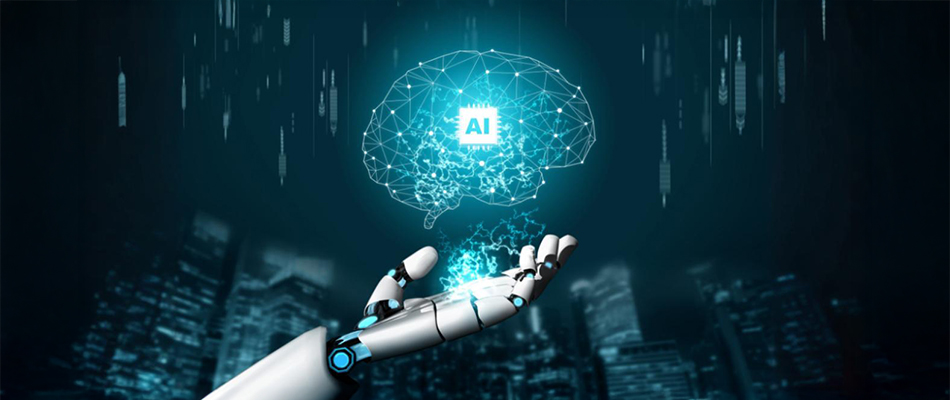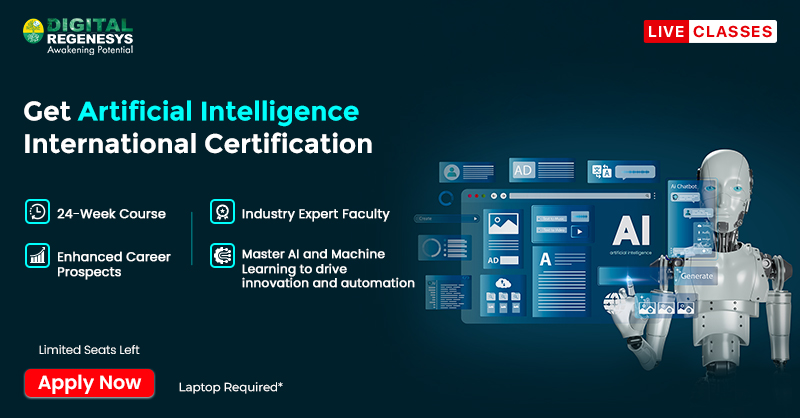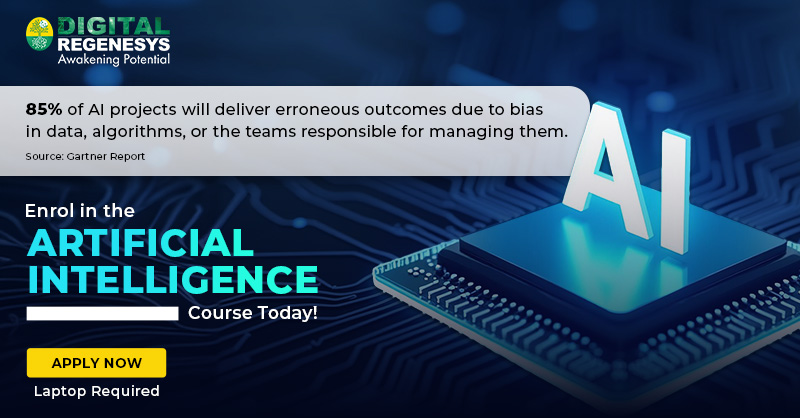Why Do We Need Artificial Intelligence? Learn Here

Artificial Intelligence is quietly transforming the way we live, work, and interact with technology. From apps that recommend what to watch next to tools that detect health risks early, AI is shaping experiences and decisions in ways we often take for granted.
But beyond convenience, AI is tackling challenges that were once too complex for humans alone, enabling businesses and individuals to make smarter choices and act more quickly.
Understanding why we need artificial intelligence is crucial for anyone who wants to thrive in today’s rapidly changing world. It’s not just about technology; it’s about leveraging AI to save time, reduce errors, improve efficiency, and create opportunities that didn’t exist before.
Organisations that adopt AI gain a competitive edge, while professionals who understand its potential can unlock new career paths and innovations.
In this article, we’ll break down eight key reasons why AI has become indispensable, exploring practical benefits, real-world applications, and how it’s shaping the future across industries.

AI Enhances Decision-Making
AI can process vast amounts of data in seconds, spotting patterns and trends that humans might miss. This makes decision-making faster, wiser, and more reliable. For example, a business can use AI to predict customer behaviour, while hospitals can forecast patient needs and treatment outcomes.
By providing actionable insights, AI reduces guesswork and helps organisations make informed choices. Understanding this is a key reason why we need artificial intelligence. It’s not about replacing humans, but about giving them better tools to make smarter decisions.
Key Takeaways:
- Analyse large datasets quickly
- Spot patterns humans might miss
- Reduce guesswork in decisions
- Support informed business and healthcare choices
Automating Repetitive Tasks
AI excels at handling routine, time-consuming tasks so humans can focus on more meaningful work. Tasks like sorting emails, processing invoices, or answering common customer questions can be automated using AI-powered tools.
This not only saves time but also reduces errors and increases efficiency. Companies in sectors like banking, logistics, and customer service are already reaping these benefits. This is another compelling reason we need artificial intelligence. It enables people to focus on creative problem-solving and strategic work, rather than repetitive tasks.
Key Takeaways:
- Automate time-consuming tasks
- Reduce errors and improve efficiency
- Free humans for strategic, creative work
- Save time across industries
Explore details on The Best AI Productivity Tools in 2026.
AI Enables Personalisation
AI helps tailor experiences to individual needs, making interactions more relevant and valuable. For instance, streaming services recommend shows you’re likely to enjoy, online stores suggest products based on your shopping habits, and healthcare platforms can suggest personalised treatment plans.
This kind of customisation increases satisfaction and efficiency. Personalisation is a key reason we need artificial intelligence. It enables services and organisations to meet unique needs at scale, providing people with more innovative, faster, and more relevant experiences every day.
Key Takeaways:
- Deliver personalised experiences efficiently
- Increase engagement and satisfaction
- Support healthcare, education, and retail
- Make services more relevant at scale
Solving Complex Problems
Some problems are simply too significant or data-intensive for humans alone. AI can analyse massive datasets to find solutions in areas like climate prediction, fraud detection, and medical research. Machine learning models identify patterns that humans might miss, providing insights that drive smarter actions.
This demonstrates a major reason why we need artificial intelligence. It enables us to tackle complex, real-world challenges more efficiently and accurately than traditional methods, unlocking solutions that improve lives and drive progress across various industries.
Key Takeaways:
- Analyse complex, large-scale problems
- Discover patterns humans might overlook
- Enable faster, smarter decision-making
- Solve challenges across industries
Learn more about AI in Healthcare.
Increasing Efficiency and Productivity
AI can make everyday processes faster, smoother, and more reliable. From optimising supply chains and managing inventory to automating repetitive office tasks, AI helps organisations save time and resources.
By reducing errors and streamlining workflows, employees can focus on strategic, creative, and high-impact tasks.
Key Takeaways:
- Streamline processes and workflows
- Reduce errors and save resources
- Enable employees to focus on strategic work
- Increase overall productivity and efficiency
AI Drives Innovation
AI isn’t just about making existing processes better; it’s about creating new possibilities. Companies are using AI for autonomous vehicles, intelligent assistants, predictive analytics, and even discovering new drugs. It enables researchers to experiment more quickly and uncover insights that were previously out of reach.
Innovation is a strong reason why we need artificial intelligence: it enables creativity, opens new markets, and allows organisations to develop products and solutions that transform industries and improve everyday life.
Key Takeaways:
- Enable new products, services, and business models
- Accelerate research and development
- Foster creativity and technological advancement
- Unlock opportunities that didn’t exist before
Get insights on Can You Learn Artificial Intelligence Without Coding?
Enhancing Safety and Security
AI plays a growing role in keeping people and systems safe. In cybersecurity, AI monitors networks to detect unusual activity before it becomes a problem. In transportation, AI enhances road safety through the development of autonomous vehicle technology.
AI-enabled monitoring in workplaces or public spaces can prevent accidents and respond to threats quickly.
Key Takeaways:
- Detect and prevent threats early
- Improve safety in vehicles and workplaces
- Monitor and respond to risks proactively
- Protect people, data, and assets
Supporting Global Challenges
AI is helping tackle some of the world’s most pressing issues, from climate change and renewable energy management to epidemic prediction and disaster response. By analysing massive datasets and predicting outcomes, AI helps governments, organisations, and researchers respond more quickly and effectively.
Its ability to manage complex problems at scale illustrates why we need artificial intelligence.
Key Takeaways:
- Address global problems like climate change and health crises
- Improve resource management and response strategies
- Enhance decision-making in complex scenarios
- Support large-scale scientific and humanitarian initiatives

Conclusion
Understanding why we need artificial intelligence helps individuals and organisations use it effectively to improve decision-making, automate tasks, personalise experiences, tackle complex problems, increase productivity, drive innovation, enhance safety, and address global challenges. AI is not just a technological tool – it’s a way to amplify human potential and create more innovative solutions for the challenges of today and tomorrow.
The Digital Regenesys Artificial Intelligence Certificate Course equips learners with practical skills, hands-on experience, and industry-relevant knowledge, enabling them to confidently understand, implement, and benefit from AI in real-world scenarios.
Visit Digital Regenesys to explore the course and start mastering Artificial Intelligence for personal and professional growth.
Last Updated: 10 October 2025
